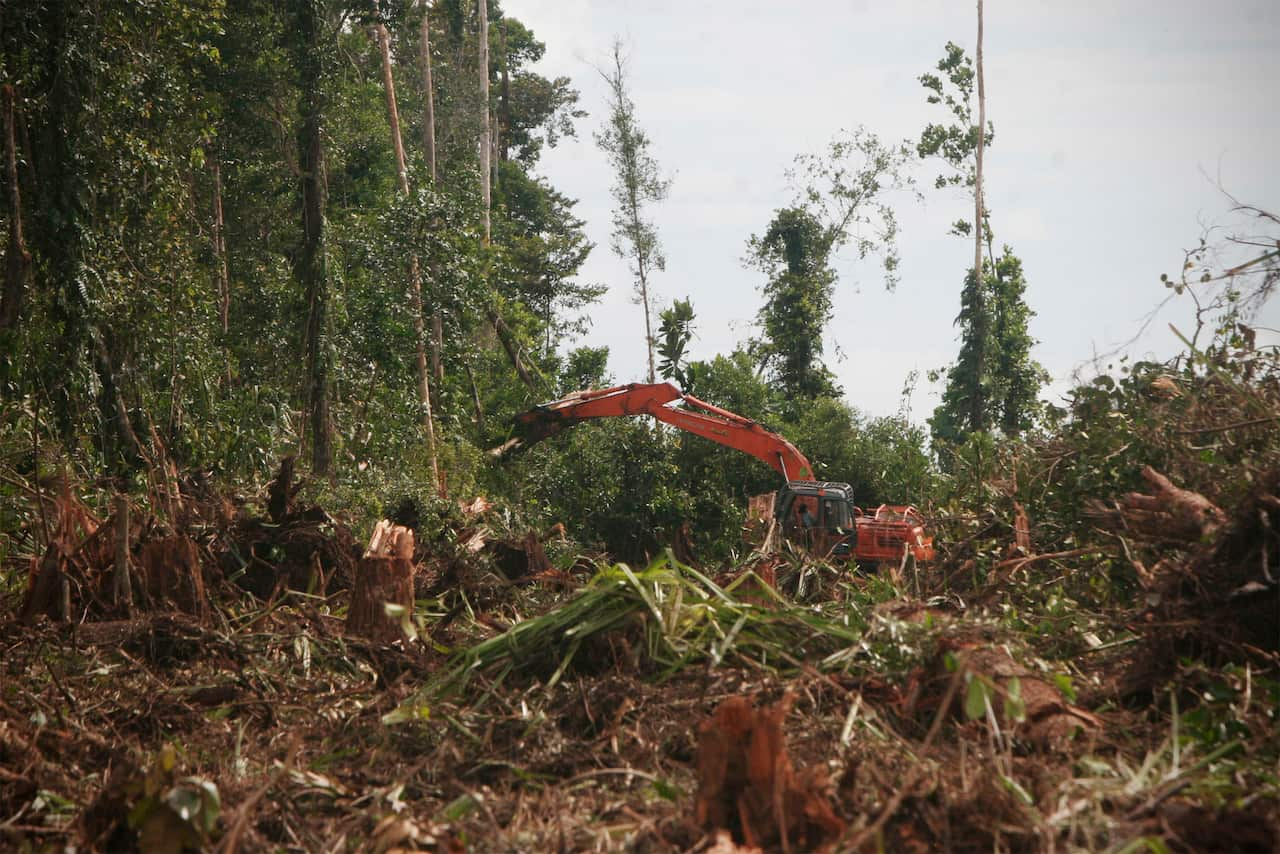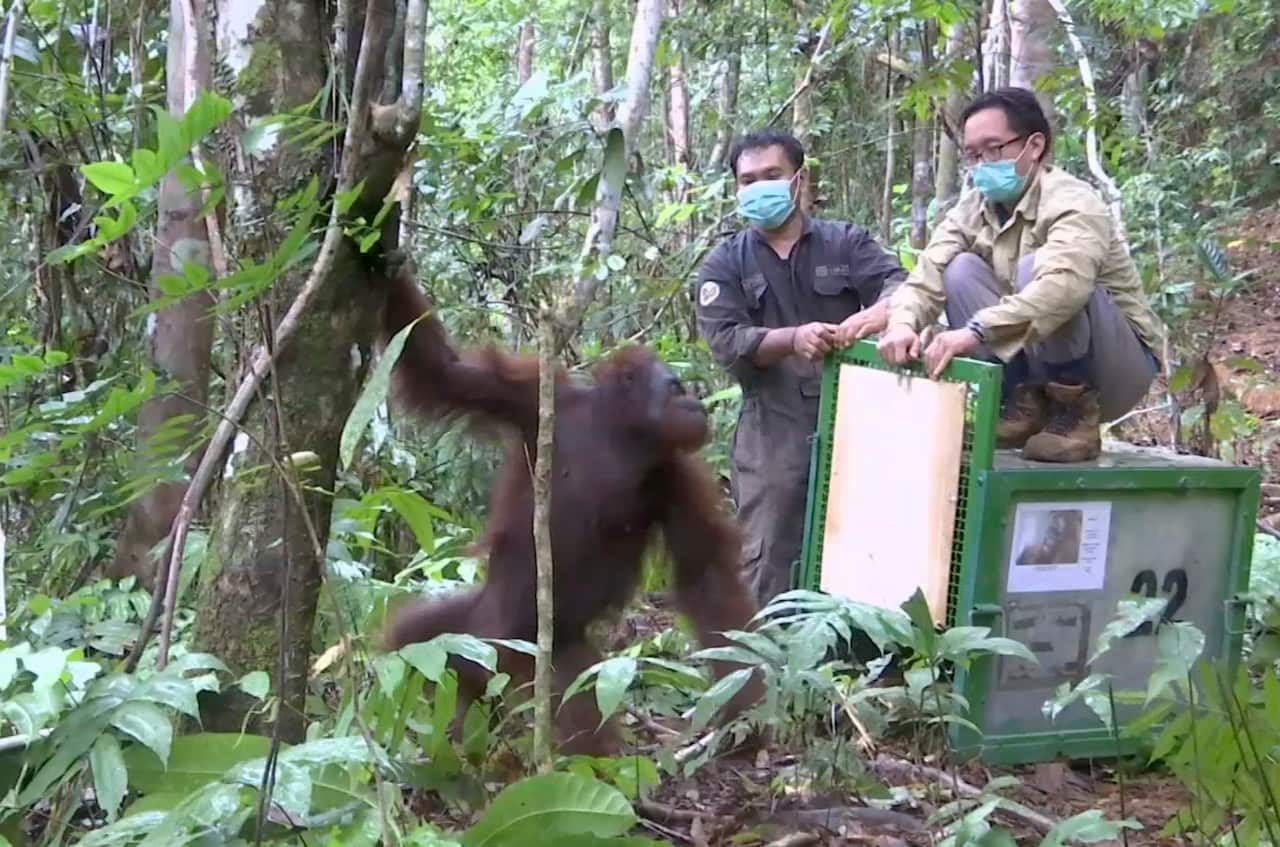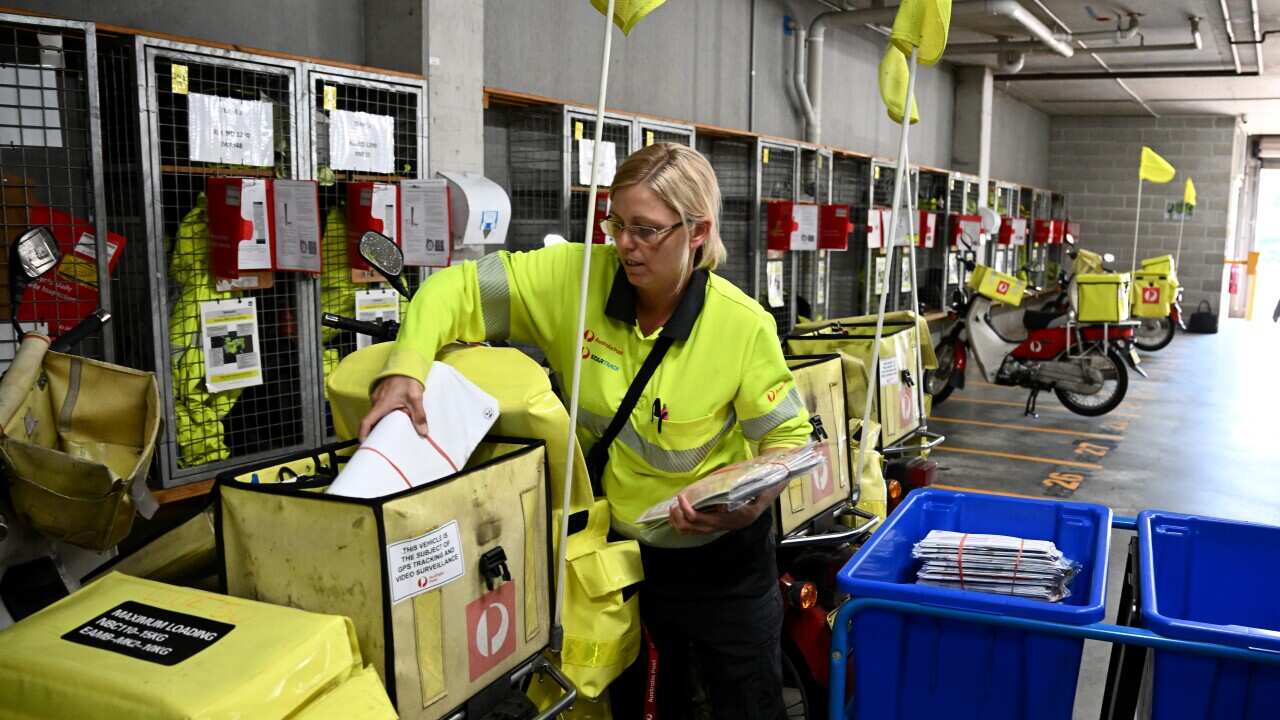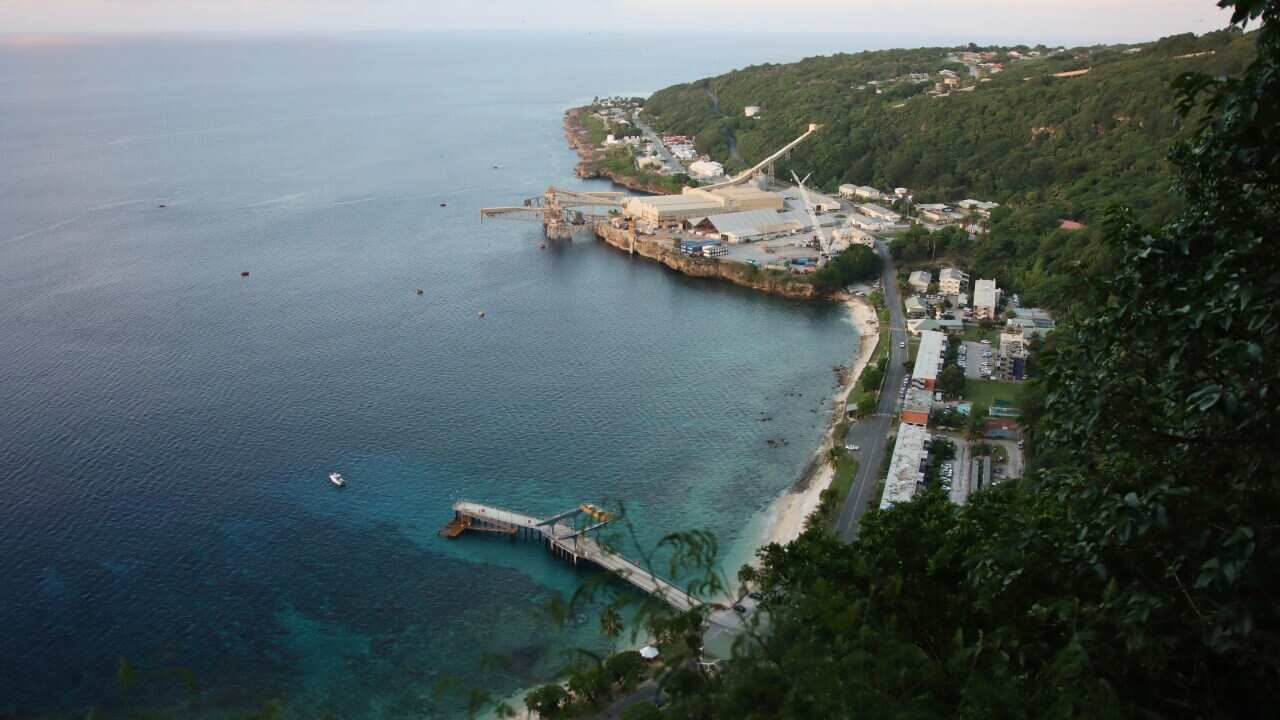Australian and New Zealand ministers will meet on Friday to decide whether to introduce mandatory palm oil labelling legislation.
Environmental campaigners and conservationists are pushing for change because they say palm oil production is linked to deforestation and results in the death of around 1000 orangutans in South East Asia each year.
Renowned primatologist Dr Birute Galdikas, who has been living in Borneo for the past 45 years studying and saving orangutans, said Australians should be allowed to make an ethical choice about what food they consume.
“The establishment of palm oil plantations in Borneo and Sumatra has meant the virtual extinction of wild orangutan populations and I think that’s enough, enough ethically to stop people from using palm oil when there is so many other good oils available,” she said.
The United Nations estimates that palm oil is used in almost half of all packaged supermarket products, including potato chips, biscuits, cereal, chocolate, margarine and other spreads.
In Australia, food manufacturers are only required to list it as vegetable oil. Food Standards Australia and New Zealand has previously rejected an application for mandatory labelling because it was about environmental concerns.
Food Standards Australia and New Zealand has previously rejected an application for mandatory labelling because it was about environmental concerns.

A heavy machine clears up forest in Aceh province to convert it to a pal, oil plantation. (AAP) Source: AAP
Dr Galdikas said the current labelling situation was misleading and too confusing for consumers.
“Until you start looking at what products contain you have no idea, I mean, I didn’t and I’m an orangutan activist. I had no idea,” she said.
Bornean orangutans are the world’s largest tree climbing mammals – they are also one step from becoming extinct.
“The establishment of palm oil plantations in Borneo and Sumatra has meant the virtual extinction of wild orangutan populations."
In the mid 1970s there were nearly 300,000 of them swinging through the lush forests of Borneo and Sumatra, today there are around 50,000.
In July this year, the International Union for Conservation of Nature (IUCN) declared Borneo’s orangutans critically endangered, joining their Sumatran cousins.
The IUCN found that hunting, habitat destruction and degradation are the biggest drivers behind the population loss.
“Orangutans in Borneo are particularly endangered because of the massive fires that sweep through due to clearing, particularly for palm oil,” Dr Galdikas said.
“It is the cheapest way to clear the forest, and that is fire.”
In 2015, raging forest fires spread deep into national parks and tropical peatland areas burning through 20,000 square kilometres, threatening orangutans even further.
'Refugees in their own land'
Dr Galdikas said over the past 20 years, 90 per cent of the world’s orangutan habitat had been destroyed.
“When a palm oil plantation is established, the orangutans that used to live there become refugees in their own land, they starve, they start raiding the young palm oil plants, they destroy them and of course the palm oil managers, concessionaires, tend to kill them,” she said.
Dr Galdikas is well known in the field of primatology and is recognised as a leading authority on orangutans.
In 1971, she was chosen to be one of the so-called “Trimates” – alongside Jane Goodall and Dian Fossey – to study the great apes in their natural environment.
She never returned home from Camp Leakey in Tanjung Putting National Park and has since dedicated her life to studying, saving and rescuing orphaned and injured orangutans, founding the charity Orangutan Foundation International in 1986. “From the first day that I came here I really wanted to help them. I really grew in love with the orangutans and I think that would happen to anybody who’s with them long enough,” she said.
“From the first day that I came here I really wanted to help them. I really grew in love with the orangutans and I think that would happen to anybody who’s with them long enough,” she said.

Activists open a cage to release a rehabilitated orangutan back into the wild at Kehje Sewen forest in East Kalimantan, Indonesia. (AAP) Source: AAP
“They are wonderful benign creatures. They are our cousins, they share with us a certain kind of intelligence. They are our kin, our blood kin, and I think it would be a sadder and more lonelier world if we allowed our blood kin to go extinct.”
Orangutan Foundation International (OFI) is a non-profit charity that relies entirely on donations.
It has protected more than 1.5 million acres of rainforest habitat and saved hundreds of captive and orphaned orangutans from death or a dire life in captivity.
OFI is currently looking after 330 rescued and confiscated wild-born orangutans needing medical care.
Some of the orphaned babies at its care centre in Pangkalanbun were rescued from last year’s devastating forest fires - others were found wandering alone in palm oil plantations or removed from the pet trade.
They are now being taught how to fend for themselves. At only a few years old they go to jungle school where they learn how to survive in the forest independently.
Dr Galdikas says baby orangutans are usually nurtured by their mothers until they’re around eight years old. Dedicated care-givers act as a surrogate mother to help ease the trauma many of the babies have faced.
“You have to make sure that the orangutan has an as normal as possible emotional development," she said.
"That’s why we let them out in the trees during the day so that they can be in the trees and interact with other orangutans. They have to learn how to make a nest, what foods to eat, and social skills.”
OFI recruits mainly local people to help work at the care centres and as rangers protecting against illegal clearing in protected forests. Community education and support is also one of its programs.
Thomas Sari Wuwur is a local conservationist and campaigner helping to change the mindset of Indonesians about protecting the forest.
“We have a schedule to educate local people and then we train them to be guides and everything," he said.
"We need to work together with the world to protect the forest. Changing the mindset.
“By protecting the orangutan and the forest, more tourists come and then bring more money to the local people.”
Dr Galdikas is also a supporter of sustainable tourism.
“The best campaigner for an orangutan is an orangutan themselves," she said.
"When people experience and interact with wild orangutans, they come back and their lives have changed because they have experienced kinship with a creature that is not human, but in some ways – how should I say this politely – has more qualities that are valuable than humans.”
At 70 years old, Dr Galdikas shows little sign of slowing down and says she will continue to do everything in her power to save orangutans while she still can.
“They deserve the freedom to live as they were meant to be, as they were born and that is in the wild.”









